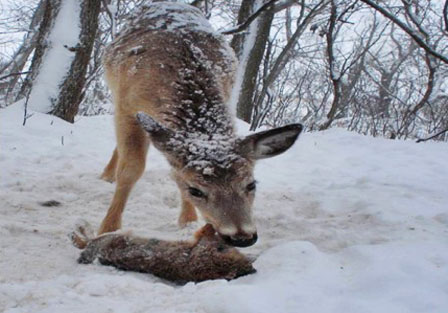Yes, it is multi-faceted, complicated and confusing, as with so many things in nature. Anyone who isn't confused yet still has more learning to do about nature, it seems.
There are multiple aspects of carnivory. The one people tend to focus on is what they think an organism actually consumes in its wild habitat, which often depend on overly simplified and romantic notions or inadequate observational data on the species in question. There are other aspects too, such as these:
The foods that are available to an organism in its habitat.
The hunting/killing/butchering/eating capabilities of an organism.
What foods an organism can digest and what nutrients it can absorb from them.
What an organism needs to consume in order to survive and thrive.
The foods that the anatomy and physiology of an organism is most geared toward digesting and utilizing.
The genetic and epigenetic history of the organism.
The zoological classification of an organism.
Changing definitions of what constitutes a carnivore and its subclassifications and of what classifies as "meat."
And probably others that aren't occurring to me right now. The giant panda is an interesting example, because according to those who have studied it, the giant panda has one of the most carnivorous physiologies among the bear/ursidae family of the order carnivora, yet their diet in the wild has been reported as coming as much as 99% from bamboo plants, given current data. Interestingly, they reportedly digest their diet much less well than the average mammal and produce much more feces and spend much more time lying about and sleeping than average. I have shared info on them in the past in this forum.
The hippopotamus is an herbivore, yet it will munch on the rotting meat of a carcass:
Hippo Eats BuffaloEven deer will eat meat (Seeing is believing with meat-eating deer,
http://www.kpcnews.net/outdoors/index.php?option=com_content&view=article&id=557:seeing-is-believing-with-meat-eating-deer&catid=37:don-mulligan&Itemid=55):

"Two such researchers recently stumbled across some crazy deer behavior, and what they uncovered has to be seen to be believed.
According to their research, deer aren't the strict vegetarians we thought they were [Note: I have seen no evidence of such thing as a "strict vegetarian" in the wild--vegetarianism is a human-invented philosophical notion rather than a scientific term.]. Sometimes deer prefer corn, apples, acorns or clover, and sometimes they just want a nice steak.
That's right. Deer eat meat. ....
The Thurston-Squibb study revealed deer as more omnivorous than ever previously recorded, however. Instead of making conclusions based on isolated observations of deer eating bird eggs and fish, this study offers scientific evidence that deer eat everything from rabbits to turkeys, to other deer."
...and even a live baby bird:
deer eating a birdThis from another study of deer eating meat in the wild:
"A few years ago, Canadian bird researchers capturing songbirds in mist nets reported deer eating songbirds right out of the nets. Although they also suspected the deer as nest predators, they could not confirm it.
But Pietz now has proof they are, at least in North Dakota. The deer her cameras recorded found the nests when they were grazing at night. They may have been attracted to the adult bird flushing as the deer approached. In both cases, the nests contained nestlings. But Pietz is confident that if a deer found a nest containing eggs, it would eat them too. "They don't have to be stealthy predators to take eggs out of a nest," she points out.
When she first recorded a deer eating nestlings, she wondered if they would eat eggs, too. She incorporated the help of a captive deer at the research center to find out. "We presented it with a few quail eggs -- just to see what it would do -- and it munched them right up."
It's not too surprising that a variety of animals would be interested in nest contents, says Rothwell. "There's certainly some nutritional value." ('Herbivores' Busted Preying on Bird Nests,
http://www.npwrc.usgs.gov/news/press/ontape.htm)
Nature does not tend to have 100% absolute pure rules about how things must be done--that tends to be the realm of modern humans.
